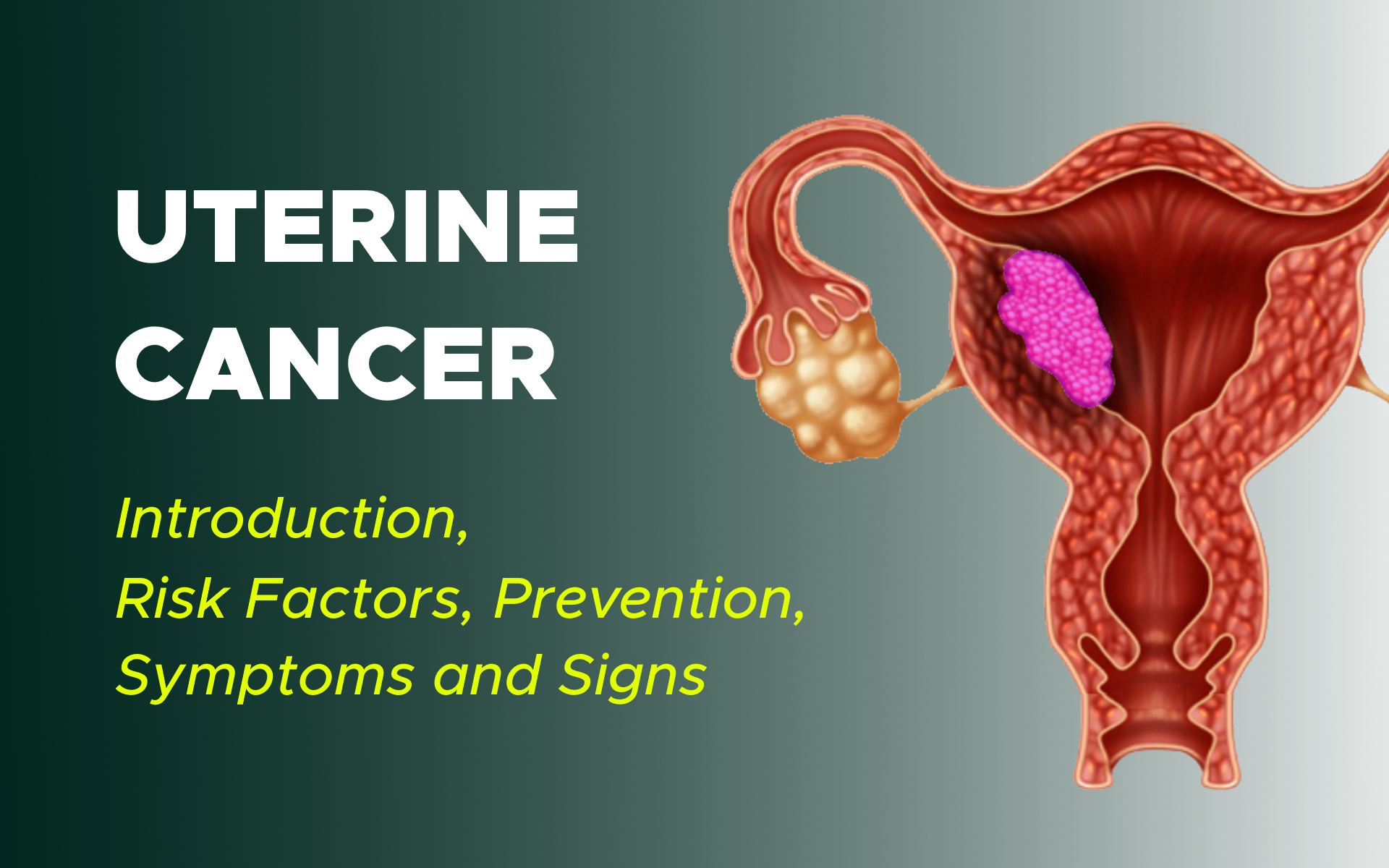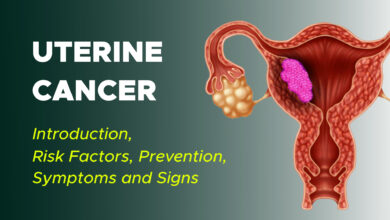
Uterine Cancer: Risk Factors
Factors that may raise a woman’s risk of developing uterine cancer.
Risk Factors
A risk factor is anything that increases a person’s chance of developing cancer. Although risk factors often influence the development of cancer, most do not directly cause cancer. Some people with several risk factors never develop cancer, while others with no known risk factors do. Knowing your risk factors and talking about them with your doctor may help you make more informed lifestyle and health care choices that may help you minimize your cancer risk.
The following factors may raise a woman’s risk of developing uterine cancer:
Age. Uterine cancer most often occurs in women over 50. The average age at diagnosis is 60. Uterine cancer is not common in women younger than 45.
Obesity. Fatty tissue in women who are overweight produces additional estrogen, a sex hormone that can increase the risk of uterine cancer. This risk increases with an increase in body mass index (BMI), which is the ratio of a person’s weight to height. About 70% of uterine cancer cases are linked to obesity.
Race. White women are more likely to develop uterine cancer than women of other races/ethnicities. However, Black women have a higher chance of being diagnosed with advanced uterine cancer. Black women and Hispanic women also have a higher risk of developing aggressive tumors.
Genetics. Uterine cancer may run in families where colon cancer is hereditary. As explained in the above, women in families with Lynch syndrome, also called hereditary non-polyposis colorectal cancer (HNPCC), have a higher risk for uterine cancer. It is recommended that all women under the age of 70 with endometrial cancer should have their tumor tested for Lynch syndrome, even if they have no family history of colon cancer or other cancers.
The presence of Lynch syndrome has important implications for women and their family members. About 2% to 5% of women with endometrial cancer have Lynch syndrome. In the United States, about 1,000 to 2,500 women diagnosed with endometrial cancer each year may have this genetic condition.
Diabetes. Women may have an increased risk of uterine cancer if they have diabetes, which is often associated with obesity.
Other cancers. Women who have had breast cancer, colon cancer, or ovarian cancer may have an increased risk of uterine cancer.
Tamoxifen. Women taking the drug tamoxifen to prevent or treat breast cancer have an increased risk of developing uterine cancer. The benefits of tamoxifen usually outweigh the risk of developing uterine cancer, but all women who are prescribed tamoxifen should talk with their doctor about their personal benefits and risks.
Radiation therapy. Women who have had previous radiation therapy for another cancer in the pelvic area, which is the lower part of the abdomen between the hip bones, have an increased risk of uterine cancer.
Diet/nutrition. Women who eat foods high in animal fat may have an increased risk of uterine cancer.
Estrogen. Extended exposure to estrogen and/or an imbalance of estrogen is related to many of the following risk factors:
- Women who started having their periods before age 12 and/or go through menopause later in life.
- Women who take hormone replacement therapy (HRT) after menopause, especially if they are taking estrogen alone. The risk is lower for women who take estrogen with progesterone, which is another sex hormone.
- Women who have never been pregnant.
